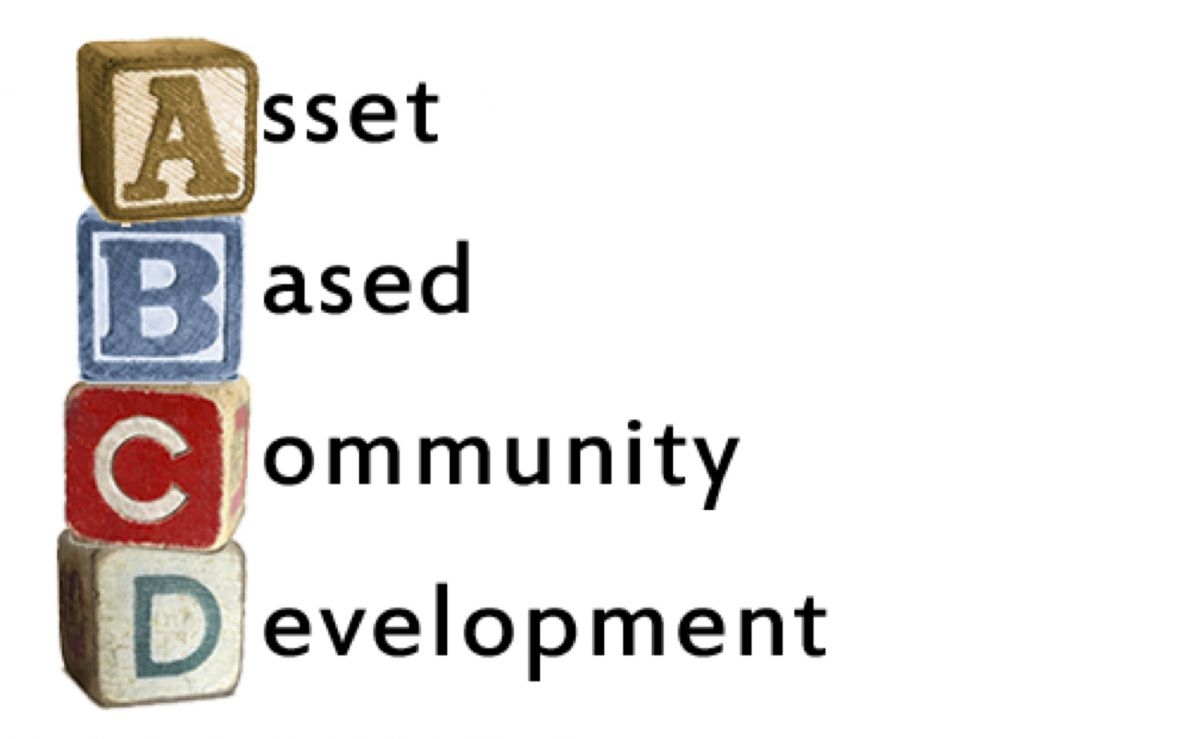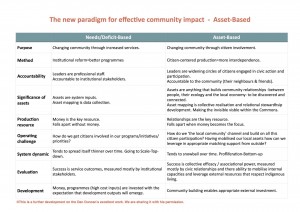
Asset-Based Community Development is not an alternative to Services
Sadly ABCD rhetoric is being bandied about in some quarters as a quick fix solution, as is Time Banking, Local Area Coordination and anything else that speaks to community-led action.
But both citizens and savvy practitioners know rhetoric is not practice, and ABCD in particular is not a model. You can’t therefore throw it at people as a means of getting them to do for themselves and each other what you can no longer package and deliver in a service.
The thinking around all of this has become confused of late, especially in the UK, so in an effort to be helpful and hopeful, yet challenging, I wanted to put together a clear articulation of how ABCD as a practice and perspective differs to more traditional community engagement approaches.
Here it goes. Suffice to say Asset-Based Community Development practice does not seek to save the system money, but rather to save people from the system. Ethical ABCD practitioners are not interested in creating citizen-led ‘services’ or alternatives to mainstream services, they are interested in supporting regular people to live interdependent lives and to grow powerful civic action. The box below sets out how ABCD differs to traditional “service based thinking”, hence it is not about service reform or redesign but about having a life, growing free space and deepening democracy.
As with every approach, when it comes to ABCD there are those who talk a good show but engage in crap practice, those who’ve never heard the words ABCD but live it every day in their practice, and those who do both. Hopefully the distinctions above help in figuring out the difference and making the best choices possible in difficult times.
Cormac Russell.


Burcu Borysik
Excellent blog, Cormac and Dan. Indeed ABCD should not be seen as a substitute for the welfare
state.
This precise point came up in our evaluation of the Vintage Communities, a brilliant asset-based community development initiative that facilitates a movement of people committed to developing connected and caring communities which bring together young and old to find local solutions to local problems and in the process develop social networks and a sense of being valued and part of the community.
Our interviews whave highlighted that many interpreted ABCD in the framework of “Big Society”. They accepted that previously statutory or publicly funded services will not be available in the future as a consequence of austerity measures and suggested that communities can help to substitute these gaps. As if by some fairy magic, and all of a sudden, people will step into the shoes of services.
People also need accessible spaces to meet and greet and speak to each other and find their solutions. In an environment where local libraries, community centres are shut down, we should be asking ourselves – but where are these people going to meet and connect?
The Vintage Communities example demonstrated how involvement of institutions, and formal services can aid the development of community capacity, especially when frontline staff can step up for a community gapper role by identifying the skills they can offer to the wider community and enable them to make new connections to offer these skills to.
Sadly the power of ‘grapevine’ is not understood enough. Most individuals hear about the project from their local connectors. This means in practice, for us to be able to reach the least connected, we need more ‘gappers’ in institutions and services to act as gateway -schools to involve children, colleges and workplaces to involve young people, local outreach teams to involve homeless people, and so forth.
I fear attempts to substitute services with ABCD risks propagating systematic exclusion – the very opposite of the citizen-led, inclusive politics that ABCD practitioners would advocate!
Jill Duncan
I think that an intentional community is a fantastic idea for individuals who needs support. However, in our current lives how many people give in their own communities? How many fences are being put up to keep our privacy? We have our garages to drive into so we don’t connect with others. Wouldn’t the backbone of building a community for others is to demonstrate it ourselves? Networking with neighbours, extending a hand , communication alone would be awesome. But we are all tied up in our own worlds that giving back, paying it forward just doesn’t happen.
An intentional community needs buy in and I cant wrap my head around creating an intentional community in an existing community.